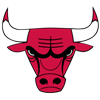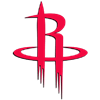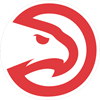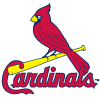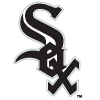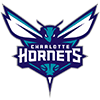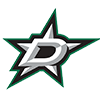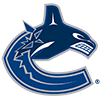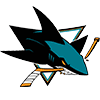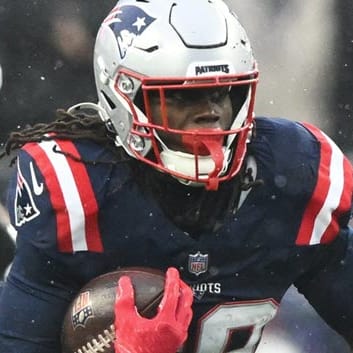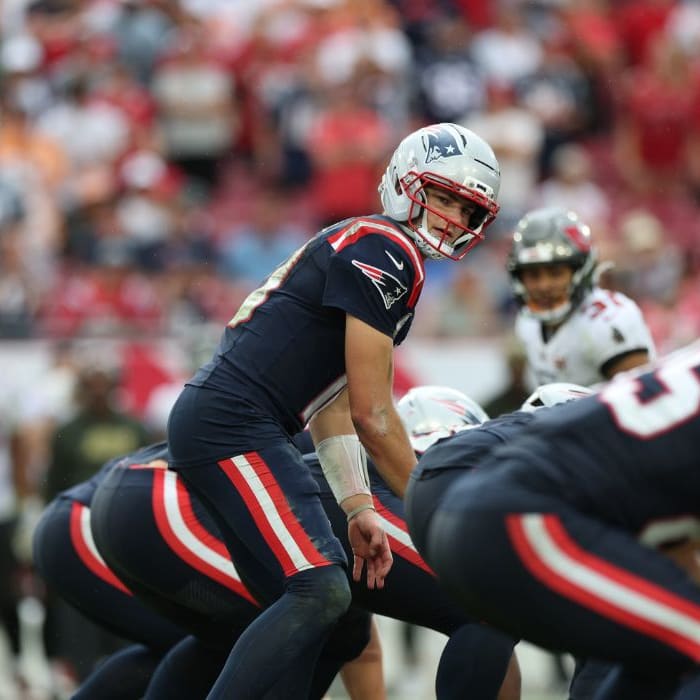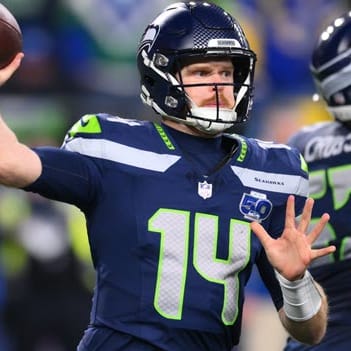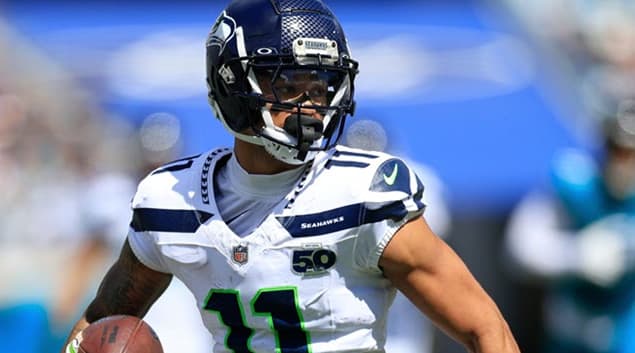I went 1-1 last week, winning my best bet (49ers), and losing with the Titans, (though I did peg the over as my biggest lean in that game), bringing my playoff record to 6-4.
For the podcast version of this article, click here.
Super Bowl 54
49ers +1 vs Chiefs (O/U 54.5, ML: -$-105/-115)
This is the match-up I wanted to see, not only because these teams were easily the best of the final four, but also because it's the perfect test for my "Defense Covers Super Bowls" thesis. I expounded on this thesis in a Twitter thread, and in two previous columns (click here and here.)
In a nutshell, it's that elite defenses substantially outperform the spread in Super Bowls. Accordingly, I won big on the 2013 Seahawks against the highest-scoring-team-ever, Peyton Manning's Broncos, and I won some money on the six-point underdog 2015 Broncos who easily beat the 17-1 Cam Newton Panthers. (Other examples include the underdog 2002 Bucs who crushed the Raiders and the three-point favorite 2000 Baltimore Ravens who crushed the Giants.)
But before I laid a big bet on the 49ers, I wanted to support the theory with more data. Accordingly, I looked at point spreads, margins, defensive rankings, defensive points against and Football Outsiders' defensive DVOA for Super Bowl teams since 1980 where data was available:
| SB | Favorite | Underdog | Spread | Margin | Mar vs Spr | YPP F | YPP D | Diff | YPP Rk F | YPP Rk D | PA F | PA D | DIFF | DVOA F | DVOA D | DIFF |
| 1 | Packers | Chiefs | 14 | 25 | 11 | |||||||||||
| 2 | Packers | Raiders | 13.5 | 19 | 5.5 | |||||||||||
| 3 | Colts | Jets | 18 | 9 | 27 | |||||||||||
| 4 | Vikings | Chiefs | 12 | 16 | 28 | |||||||||||
| 5 | Cowboys | Colts | 2.5 | 3 | 5.5 | |||||||||||
| 6 | Cowboys | Dolphins | 6 | 21 | 15 | |||||||||||
| 7 | Dolphins | Redskins | 1.5 | 7 | 5.5 | |||||||||||
| 8 | Dolphins | Vikings | 6.5 | 17 | 10.5 | |||||||||||
| 9 | Steelers | Vikings | 3 | 10 | 7 | |||||||||||
| 10 | Steelers | Cowboys | 6.5 | 4 | 2.5 | |||||||||||
| 11 | Raiders | Vikings | 4.5 | 18 | 13.5 | |||||||||||
| 12 | Cowboys | Broncos | 6 | 17 | 11 | |||||||||||
| 13 | Steelers | Cowboys | 3.5 | 4 | 0.5 | |||||||||||
| 14 | Steelers | Rams | 10.5 | 12 | 1.5 | |||||||||||
| 15 | Eagles | Raiders | 3 | 17 | 20 | 4.3 | 4.7 | 0.4 | 2 | 6 | 222 | 306 | -84 | |||
| 16 | Bengals | 49ers | 1 | 5 | 6 | 5 | 4.7 | -0.3 | 14 | 4 | 304 | 250 | 54 | |||
| 17 | Dolphins | Redskins | 3 | 10 | 13 | 4.2 | 4.6 | 0.4 | 1 | 7 | 131 | 128 | 3 | |||
| 18 | Redskins | Raiders | 3 | 29 | 32 | 5.4 | 4.6 | -0.8 | 24 | 2 | 332 | 338 | -6 | |||
| 19 | 49ers | Dolphins | 3 | 22 | 19 | 5 | 5.2 | 0.2 | 15 | 22 | 227 | 298 | -71 | |||
| 20 | Bears | Patriots | 10 | 36 | 26 | 4.4 | 4.5 | 0.1 | 4 | 5 | 198 | 290 | -92 | |||
| 21 | Giants | Broncos | 9.5 | 19 | 9.5 | 4.8 | 4.8 | 0 | 11 | 10 | 236 | 327 | -91 | -14.7 | -1.4 | 13.3 |
| 22 | Broncos | Redskins | 3.5 | 32 | 35.5 | 5.1 | 4.9 | -0.2 | 21 | 13 | 288 | 285 | 3 | -4.8 | -0.6 | 4.2 |
| 23 | 49ers | Bengals | 7 | 4 | 3 | 4.5 | 4.9 | 0.4 | 2 | 11 | 294 | 329 | -35 | -11.4 | 0.2 | 11.6 |
| 24 | 49ers | Broncos | 12 | 45 | 33 | 4.7 | 4.5 | -0.2 | 6 | 3 | 253 | 226 | 27 | -11.5 | -16.6 | 5.1 |
| 25 | Bills | Giants | 6.5 | 1 | 7.5 | 4.7 | 4.6 | -0.1 | 5 | 3 | 211 | 263 | -52 | -2.9 | -14.4 | 11.5 |
| 26 | Redskins | Bills | 7 | 13 | 6 | 4.5 | 5 | 0.5 | 2 | 12 | 224 | 318 | -94 | -21.1 | 2.1 | 23.2 |
| 27 | Cowboys | Bills | 6.5 | 35 | 28.5 | 4.5 | 4.6 | 0.1 | 3 | 5 | 243 | 283 | -40 | -9.5 | -4.3 | 5.2 |
| 28 | Cowboys | Bills | 10.5 | 17 | 6.5 | 4.7 | 5 | 0.3 | 11 | 19 | 229 | 242 | -13 | 0.8 | -6.6 | 7.4 |
| 29 | 49ers | Chargers | 18 | 23 | 5 | 4.9 | 5 | 0.1 | 12 | 15 | 296 | 306 | -10 | -7.5 | 3.5 | 11 |
| 30 | Cowboys | Steelers | 13.5 | 10 | 3.5 | 5 | 4.8 | -0.2 | 13 | 8 | 291 | 327 | -36 | 0.9 | -13.5 | 14.4 |
| 31 | Packers | Patriots | 14 | 14 | 0 | 4.2 | 5 | 0.8 | 1 | 17 | 210 | 313 | -103 | -19.3 | -3.8 | 15.5 |
| 32 | Packers | Broncos | 11.5 | 7 | 18.5 | 4.6 | 4.9 | 0.3 | 5 | 15 | 282 | 287 | -5 | -10.6 | -5.9 | 4.7 |
| 33 | Broncos | Falcons | 7.5 | 15 | 7.5 | 4.9 | 5 | 0.1 | 11 | 18 | 309 | 289 | 20 | 4.3 | -16.2 | 20.5 |
| 34 | Rams | Titans | 7 | 7 | 0 | 4.7 | 5.3 | 0.6 | 7 | 27 | 242 | 324 | -82 | -12.7 | 4.2 | 16.9 |
| 35 | Ravens | Giants | 3 | 27 | 24 | 4.3 | 4.6 | 0.3 | 2 | 5 | 165 | 246 | -81 | -23.8 | -5.8 | 18 |
| 36 | Rams | Patriots | 14 | 3 | 17 | 4.7 | 5.3 | 0.6 | 5 | 24 | 273 | 272 | 1 | -11.7 | -1.5 | 10.2 |
| 37 | Raiders | Buccaneers | 4 | 27 | 31 | 5 | 4.2 | -0.8 | 11 | 1 | 304 | 196 | 108 | -6.2 | -31.8 | 25.6 |
| 38 | Patriots | Panthers | 7 | 3 | 4 | 4.4 | 4.7 | 0.3 | 4 | 6 | 238 | 304 | -66 | -18.7 | -5.1 | 13.6 |
| 39 | Patriots | Eagles | 7 | 3 | 4 | 5 | 4.9 | -0.1 | 11 | 8 | 260 | 260 | 0 | -10.7 | -2.2 | 8.5 |
| 40 | Steelers | Seahawks | 4 | 11 | 7 | 4.6 | 4.9 | 0.3 | 4 | 11 | 258 | 271 | -13 | -18.9 | 4 | 22.9 |
| 41 | Colts | Bears | 6.5 | 12 | 5.5 | 5.5 | 4.6 | -0.9 | 28 | 5 | 360 | 255 | 105 | 8.5 | -20.1 | 28.6 |
| 42 | Patriots | Giants | 12.5 | 3 | 15.5 | 4.9 | 5 | 0.1 | 7 | 9 | 274 | 351 | -77 | -5.8 | -3.8 | 2 |
| 43 | Steelers | Cardinals | 6.5 | 4 | 2.5 | 3.9 | 5.3 | 1.4 | 1 | 16 | 223 | 426 | -203 | -29 | 5.1 | 34.1 |
| 44 | Colts | Saints | 4.5 | 14 | 18.5 | 5 | 5.5 | 0.5 | 8 | 21 | 307 | 341 | -34 | -0.8 | -0.4 | 0.4 |
| 45 | Packers | Steelers | 3 | 6 | 3 | 5.1 | 4.5 | -0.6 | 12 | 1 | 240 | 232 | 8 | -13.9 | -20.7 | 6.8 |
| 46 | Patriots | Giants | 3 | 4 | 7 | 6.2 | 5.6 | -0.6 | 30 | 22 | 342 | 400 | -58 | 13.2 | 2.4 | 10.8 |
| 47 | 49ers | Ravens | 4.5 | 3 | 7.5 | 4.7 | 5.2 | 0.5 | 3 | 12 | 273 | 344 | -71 | -14.4 | 2.2 | 16.6 |
| 48 | Broncos | Seahawks | 1.5 | 35 | 36.5 | 5.3 | 4.4 | -0.9 | 15 | 1 | 399 | 231 | 168 | -0.2 | -25.9 | 25.7 |
| 49 | Patriots | Seahawks | 1 | 4 | 3 | 5.3 | 4.6 | -0.7 | 12 | 1 | 313 | 254 | 59 | -3 | -16.8 | 13.8 |
| 50 | Panthers | Broncos | 4.5 | 14 | 18.5 | 4.9 | 4.4 | -0.5 | 2 | 1 | 308 | 296 | 12 | -18.4 | -25.8 | 7.4 |
| 51 | Patriots | Falcons | 3 | 6 | 3 | 5.2 | 5.6 | 0.4 | 10 | 19 | 250 | 406 | -156 | -1.8 | 7.3 | 9.1 |
| 52 | Patriots | Eagles | 4.5 | 8 | 12.5 | 5.7 | 5 | -0.7 | 31 | 9 | 296 | 295 | 1 | 10.9 | -12.3 | 23.2 |
| 53 | Rams | Patriots | 1 | 10 | 11 | 6 | 5.7 | -0.3 | 27 | 22 | 384 | 325 | 59 | 0.5 | 0.4 | 0.1 |
| 54 | Chiefs | 49ers | 1 | 5.4 | 4.7 | -0.7 | 16 | 1 | 308 | 310 | -2 | -3.4 | -19.8 | 16.4 |
I started by tracking Super Bowl teams by yards per play allowed (both in number and rank), but realized that didn't account for teams that were efficient in red zone defense. For example, I had assumed the 2001 Patriots were the better defense than the 2001 Greatest Show On Turf Rams, but the Rams allowed only 4.7 YPP (5th) to the Pats' 5.3 (24th.) So I looked at points allowed, and sure enough, the Rams allowed 273 points on the year, while the Patriots allowed only 272. But even with points allowed, I still couldn't account for late-season surges or collapses. The defense a team sees in the Super Bowl, e.g., 2007 Giants, is often quite different than the average of the defenses that team trotted out all year. So I needed to have a recency effect too.
For that reason I settled on Football Outsiders' DVOA, which is ironic because I've mocked it ever since they missed badly on the 2007 Giants-Patriots Super Bowl. But imperfect as it might be, DVOA accounts for both strength of schedule, gives more weight to recent performances and goes back to 1986 (Which is unfortunate because the 11-point favorite 1985 Bears would certainly have helped my thesis were it included in the data.)
So I inputted the defensive DVOA number for all the Super Bowl teams since 1986. DVOA measures the percentage by which a defense is better or worse than average, with a negative number (since it's defense) being better than average and a positive number being worse. I calculated the DVOA difference between the matched-up teams, and if it were 10 or more it qualified as a substantial advantage to the defense for my purposes. (Ten is an arbitrary number, of course, but it's not cherry picking, i.e., I didn't look to see if nine or 11 would have worked out better to show my point. My purpose was to find a somewhat significant difference in defensive quality between the teams.)
There have been 21 Super Bowls since 1986 with a defensive DVOA disparity of 10 or more, and in those Super Bowls, the better defensive team has gone 11-8-2 against the spread, covering it by an average margin of 4.7 points. Over a 21-game sample, that doesn't strike me as especially significant, though it doesn't invalidate the theory, either.
| SB | Favorite | Underdog | DVOA FAV | DVOA DOG | DFF | Margin Vs Spread |
|---|---|---|---|---|---|---|
| 48 | Broncos | Seahawks | -0.2 | -25.9 | 25.7 | 36.5 |
| 37 | Raiders | Buccaneers | -6.2 | -31.8 | 25.6 | 31 |
| 35 | Ravens | Giants | -23.8 | -5.8 | 18 | 24 |
| 36 | Rams | Patriots | -11.7 | -1.5 | 10.2 | -17 |
| 52 | Patriots | Eagles | 10.9 | -12.3 | 23.2 | 12.5 |
| 21 | Giants | Broncos | -14.7 | -1.4 | 13.3 | 9.5 |
| 25 | Bills | Giants | -2.9 | -14.4 | 11.5 | 7.5 |
| 33 | Broncos | Falcons | 4.3 | -16.2 | 20.5 | -7.5 |
| 47 | 49ers | Ravens | -14.4 | 2.2 | 16.6 | -7.5 |
| 40 | Steelers | Seahawks | -18.9 | 4 | 22.9 | 7 |
| 46 | Patriots | Giants | 13.2 | 2.4 | 10.8 | 7 |
| 26 | Redskins | Bills | -21.1 | 2.1 | 23.2 | 6 |
| 41 | Colts | Bears | 8.5 | -20.1 | 28.6 | -5.5 |
| 29 | 49ers | Chargers | -7.5 | 3.5 | 11 | 5 |
| 38 | Patriots | Panthers | -18.7 | -5.1 | 13.6 | -4 |
| 30 | Cowboys | Steelers | 0.9 | -13.5 | 14.4 | -3.5 |
| 23 | 49ers | Bengals | -11.4 | 0.2 | 11.6 | 3 |
| 49 | Patriots | Seahawks | -3 | -16.8 | 13.8 | -3 |
| 43 | Steelers | Cardinals | -29 | 5.1 | 34.1 | -2.5 |
| 31 | Packers | Patriots | -19.3 | -3.8 | 15.5 | 0 |
| 34 | Rams | Titans | -12.7 | 4.2 | 16.9 | 0 |
| 54 | Chiefs | 49ers | -3.4 | -19.8 | 16.4 | |
| AVG | 4.69 |
The three biggest ATS margin wins (2013 Seahawks, 2002 Buccaneers and 2000 Ravens) were with a DVOA margin of at least 18. But the biggest loss ATS (by was by the 2001 Rams with a DVOA margin of only 10.2, and while it would be cherry-picking to omit it from the data, I don't remember anyone looking at that Super Bowl through the lens of "The Rams defense is their stronger unit, and there's no way the Patriots will move the ball against them." The next two biggest qualifying losses by ATS margin were the 1998 Broncos-Falcons (Eugene Robinson got arrested the night before, and I don't remember that team being considered a defensive juggernaut, either), the 2012 49ers (not jumping out to me as anything special defensively) and the 2006 Bears (great for two-thirds of the year until DPOY candidate Tommie Harris got hurt, and the team allowed more than 100 points over its last four regular season games.)
I can't not include those in the data -- had the Bears crushed the Peyton Manning Colts in that Super Bowl, I'd surely be counting it as a point in my favor -- but when a defense has been truly elite (2013 Seahawks, 2015 Broncos, 2002 Bucs, 2000 Ravens, 1985 Bears), it's left no doubt. And in fact, if we make the qualifying threshold even more strict, a difference of 15 percent in DVOA, the average margin by which the better defense covers the spread nearly doubles to 7.8, though now we're looking at a 12, rather than a 21-game sample.
| SB | Favorite | Underdog | DVOA FAV | DVOA DOG | DFF | Margin Vs Spread |
|---|---|---|---|---|---|---|
| 43 | Steelers | Cardinals | -29 | 5.1 | 34.1 | -2.5 |
| 41 | Colts | Bears | 8.5 | -20.1 | 28.6 | -5.5 |
| 48 | Broncos | Seahawks | -0.2 | -25.9 | 25.7 | 36.5 |
| 37 | Raiders | Buccaneers | -6.2 | -31.8 | 25.6 | 31 |
| 52 | Patriots | Eagles | 10.9 | -12.3 | 23.2 | 12.5 |
| 26 | Redskins | Bills | -21.1 | 2.1 | 23.2 | 6 |
| 40 | Steelers | Seahawks | -18.9 | 4 | 22.9 | 7 |
| 33 | Broncos | Falcons | 4.3 | -16.2 | 20.5 | -7.5 |
| 35 | Ravens | Giants | -23.8 | -5.8 | 18 | 24 |
| 34 | Rams | Titans | -12.7 | 4.2 | 16.9 | 0 |
| 47 | 49ers | Ravens | -14.4 | 2.2 | 16.6 | -7.5 |
| 31 | Packers | Patriots | -19.3 | -3.8 | 15.5 | 0 |
| 54 | Chiefs | 49ers | -3.4 | -19.8 | 16.4 | |
| AVG | 7.8 |
The one elite regular season defense that qualifies as a clear exception to me is the 2008 Steelers unit that allowed a meager 3.9 YPP and enjoyed a 34.1 DVOA difference, the largest margin of any. That team won by four, thanks to Santonio Holmes getting his toes inside the boundary (and James Harrison making a ridiculous 10-14-point pick six at the end of the first half), but allowed 23 points and failed to cover. That one I can't explain away, but it shows no indicator is perfect.
As for the other 12 games since 1986 where there was a lesser edge, the team with the better defensive DVOA broke even against the spread (6-6) and failed to cover by 1.3 points on average.
| SB | Favorite | Underdog | Spread | Margin | Margin vs Spread | DVOA FAV | DVOA DOG | DFF | Margin Vs Spread |
|---|---|---|---|---|---|---|---|---|---|
| 22 | Broncos | Redskins | 3.5 | 32 | 35.5 | -4.8 | -0.6 | 4.2 | -35.5 |
| 24 | 49ers | Broncos | 12 | 45 | 33 | -11.5 | -16.6 | 5.1 | -33 |
| 27 | Cowboys | Bills | 6.5 | 35 | 28.5 | -9.5 | -4.3 | 5.2 | 28.5 |
| 32 | Packers | Broncos | 11.5 | 7 | 18.5 | -10.6 | -5.9 | 4.7 | -18.5 |
| 44 | Colts | Saints | 4.5 | 14 | 18.5 | -0.8 | -0.4 | 0.4 | 18.5 |
| 50 | Panthers | Broncos | 4.5 | 14 | 18.5 | -18.4 | -25.8 | 7.4 | 18.5 |
| 42 | Patriots | Giants | 12.5 | 3 | 15.5 | -5.8 | -3.8 | 2 | -15.5 |
| 53 | Rams | Patriots | 1 | 10 | 11 | 0.5 | 0.4 | 0.1 | 11 |
| 28 | Cowboys | Bills | 10.5 | 17 | 6.5 | 0.8 | -6.6 | 7.4 | 6.5 |
| 39 | Patriots | Eagles | 7 | 3 | 4 | -10.7 | -2.2 | 8.5 | 4 |
| 45 | Packers | Steelers | 3 | 6 | 3 | -13.9 | -20.7 | 6.8 | -3 |
| 51 | Patriots | Falcons | 3 | 6 | 3 | -1.8 | 7.3 | 9.1 | 3 |
| AVG | -1.291666667 |
One could consider this a point against the theory — after all if a big defensive advantage has been a relatively large edge, then a more modest defensive advantage should be a modest edge. But not every input into a complex system generates linear outputs. (A medicine might have no observable effect below a threshold dose, .e.g.) In any event, this is mostly hair-splitting about a tiny sample of teams that barely differed in defensive quality with no significant effect on average outcome.
So where do the 49ers and Chiefs fit into all of this? The 49ers allowed the fewest yards per play in the NFL -- 4.7, while the Chiefs allowed 5.4 (16th.) The 49ers actually allowed more points scored than the Chiefs 310 to 308, but though DVOA has both teams as above average defensively, the 49ers were second at -19.8% while the Chiefs were only at -3.4, giving them a disparity of 16.4, qualifying the 49ers for both the 10 and 15 percent thresholds.
Moreover, the 49ers defense is almost entirely healthy, meaning we should see the best version of them in the Super Bowl, not the one missing key players like Dee Ford and Kwon Alexander during the year.
The Chiefs, despite suffering key injuries of their own to Patrick Mahomes, Tyreek Hill, Eric Fisher and Damien Williams are mostly healthy too, and have one of the best offensive nuclei of all time, coached by one of the league's best offensive minds. And Andy Reid's career record against the spread with extra time to prepare is 23-5 including the playoffs. In other words, no team, perhaps not even the highest scoring one of all time (2013 Broncos) will make a better test for my thesis.
On the other side of the ball, the Niners offense was nearly as productive (though healthier) than the Chiefs -- San Francisco averaged 6.0 YPP, while Kansas City had 6.2. And the 49ers actually outscored the Chiefs by 28 points.
The Chiefs defense graded out as slightly above average by DVOA, and it looks like star defensive tackle Chris Jones, their best defensive player, will be healthier after the two-week break. He'll be needed because the Chiefs were 29th against the run (4.9 YPC), while the Niners tend to bludgeon teams on the ground, and their head Coach Kyle Shanahan is perhaps even more creative and unpredictable than Reid.
Bottom line, because of Reid, Mahomes, Hill and Kelce, and because the Niners defense is very good, but it might not be all-time good, I'm not as confident in this pick as I was for the Seahawks-Broncos Super Bowl. But I think we're above the threshold at least where the team with the clear better defense offers significant value beyond the market number. Take the Niners.
49ers 37 - 26
For the podcast version of this article, click here.
Last week, I went 1-1 in the Championship Round, won my best bet (the 49ers) to go 6-4 for the playoffs (2-1 on best bets). I finished 127-123-6 on the regular season, 8-9 on best bets and 43-40-2 in the Super Contest. In 2018, I went 141-106-9 on the season, 10-7 on best bets, 48-36-1 in the Super Contest. From 1999-2019, I've gone 2,690-2,496 (51.9%), not including ties.





